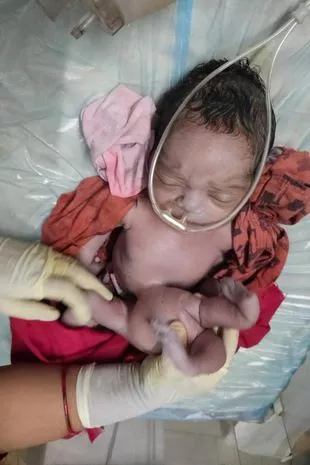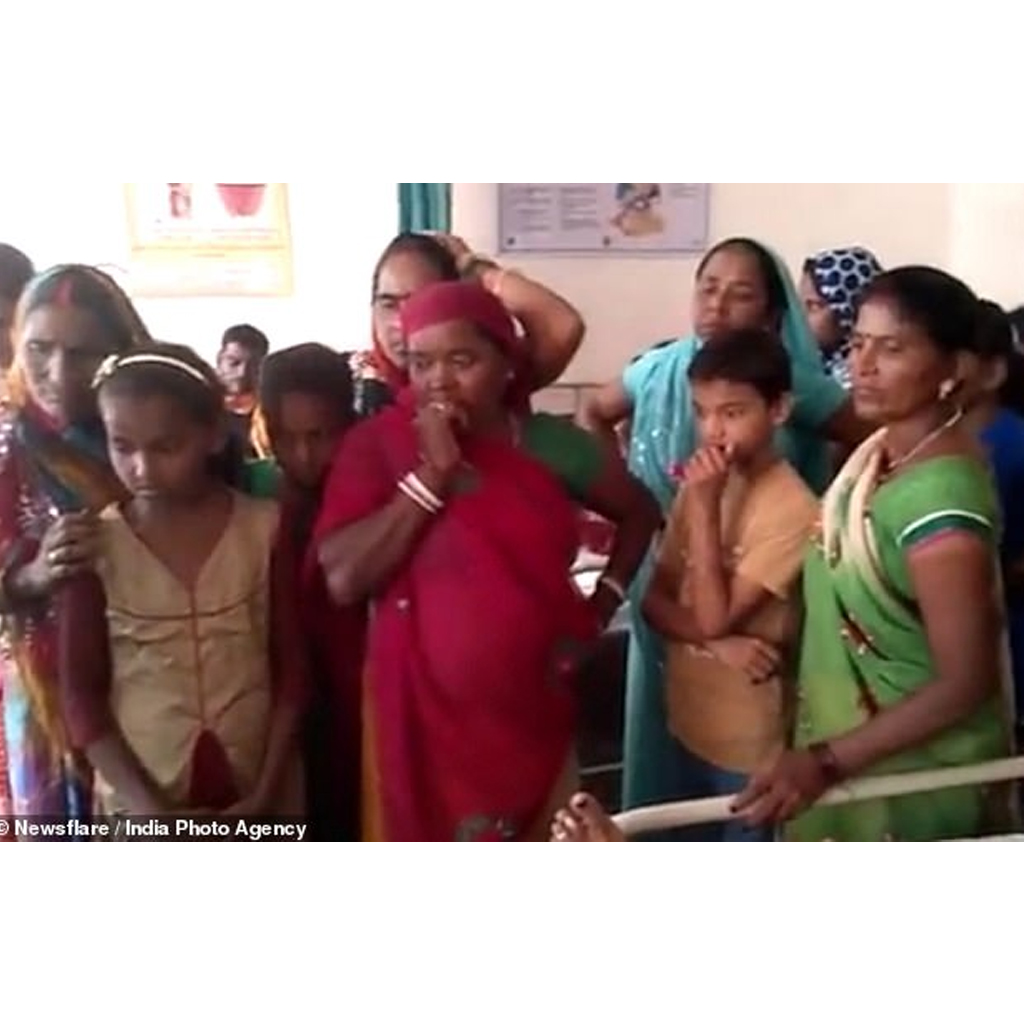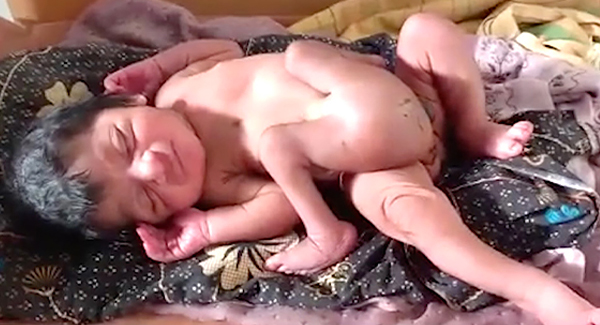A Baby Is Born With Four Arms And Four Legs In India
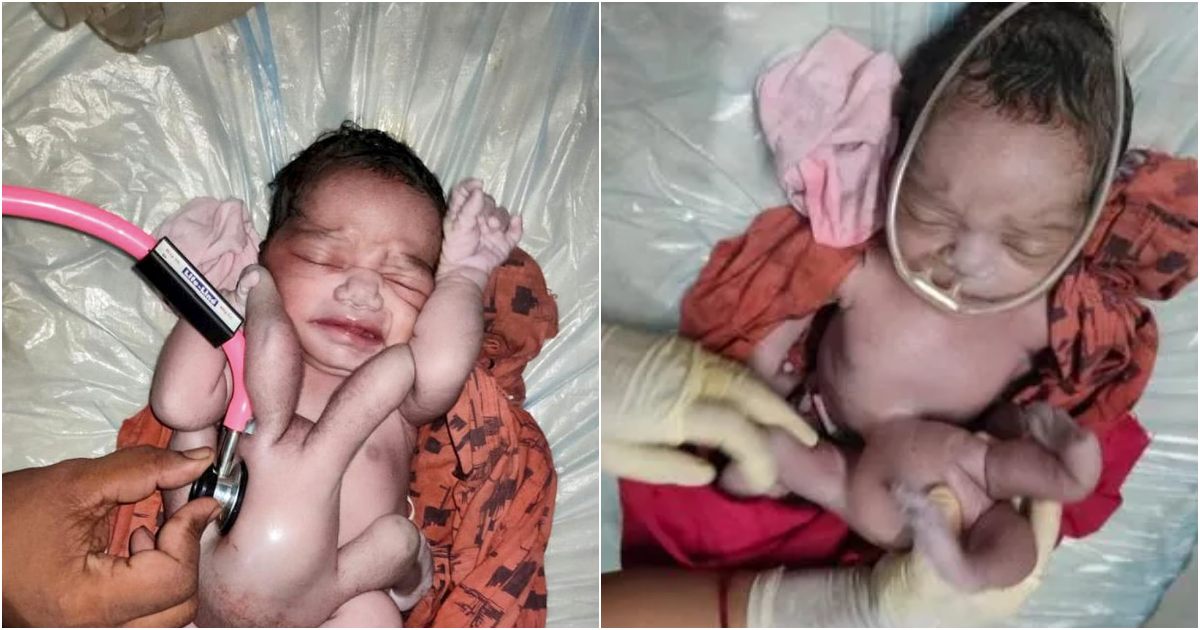
In a small Indian city called Gorakhpur, something extraordinary happened that captured the attention of people from far and wide. A baby was born with not just four limbs, but an astonishing four arms and four legs. The locals were in awe, considering it a true “miracle of God.” The child’s parents, Bulhan Nishad and Rambha, who are both laborers, were taken aback by this unexpected turn of events. The mother had been experiencing intense pain during childbirth and was rushed to the hospital, where the miraculous baby came into the world.
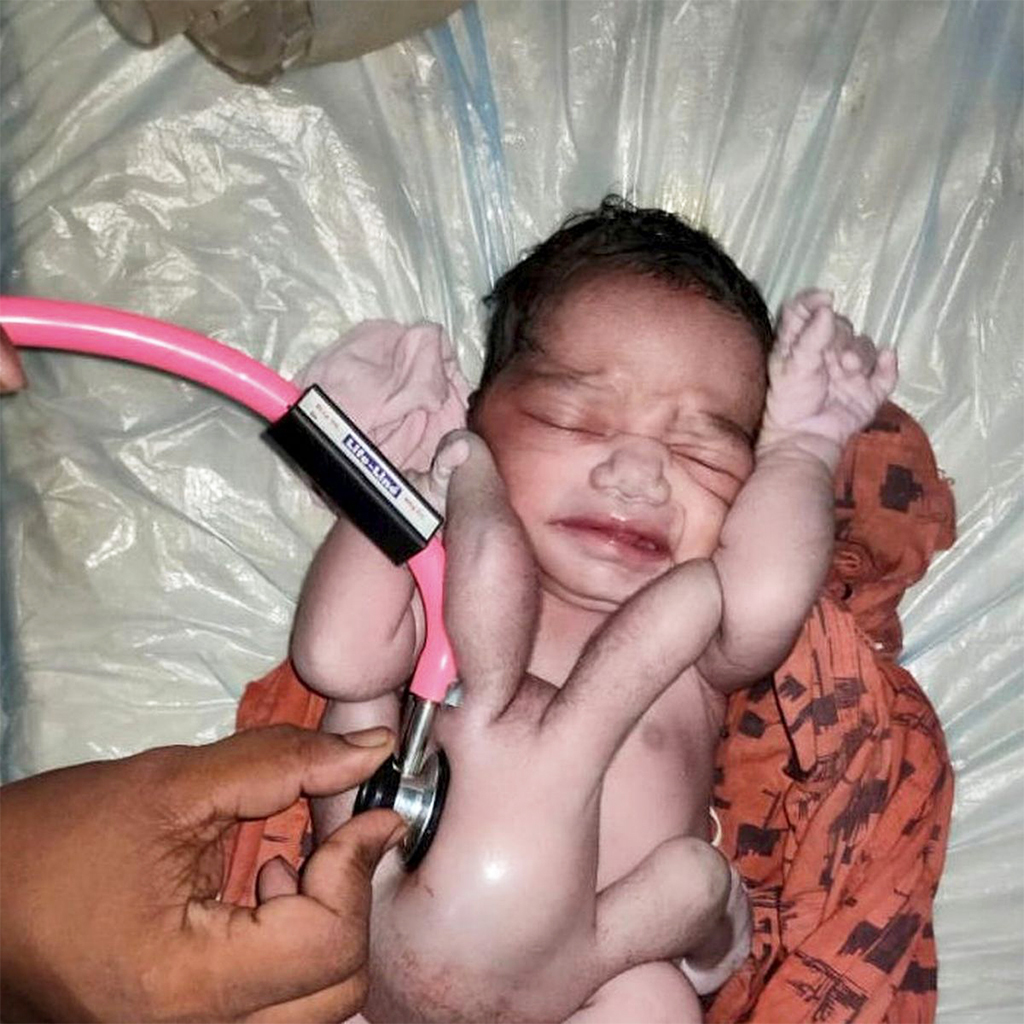
The doctors, just as surprised as the parents, quickly realized that the baby’s unique condition was likely the result of a parasitic twin. In such cases, remnants of an underdeveloped conjoined twin remain attached to the baby, leading to the presence of additional limbs or other abnormalities. It was determined that the baby would require surgery, and arrangements were made to transfer the child to a larger hospital in the nearby city of Lucknow.
News of this extraordinary birth spread like wildfire, and curious locals traveled for miles just to catch a glimpse of the baby. They regarded him as a divine blessing, a “miracle from God.” Although the doctors didn’t disclose the exact cause of the baby’s condition, parasitic twins have been documented in rare cases before. It is a complex and unusual phenomenon where the undeveloped parts of a twin remain attached to the surviving baby. In most instances, surgical intervention is necessary to remove the extra growth. These additional body parts share the same vital organs as the rest of the baby, but it remains unclear if they can be controlled in the same way.
While such cases are incredibly rare, with an estimated occurrence rate of one in a million, they have been recorded in medical history. The birth of this baby with four arms and four legs has sparked both astonishment and intrigue, reminding us of the wonders and complexities of the human body.
